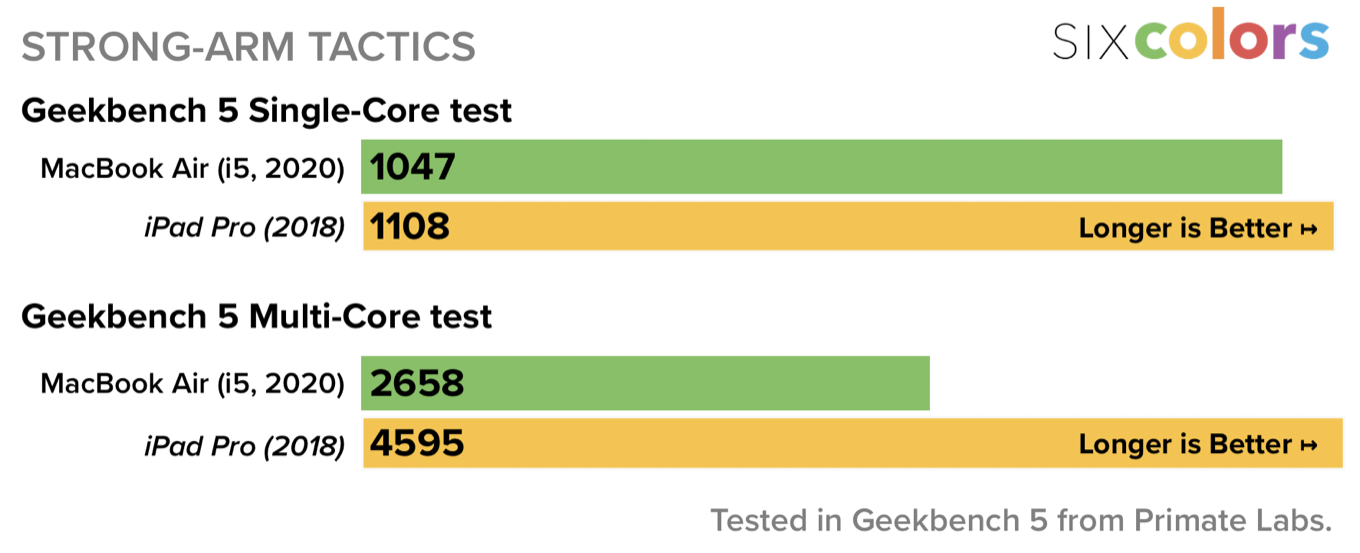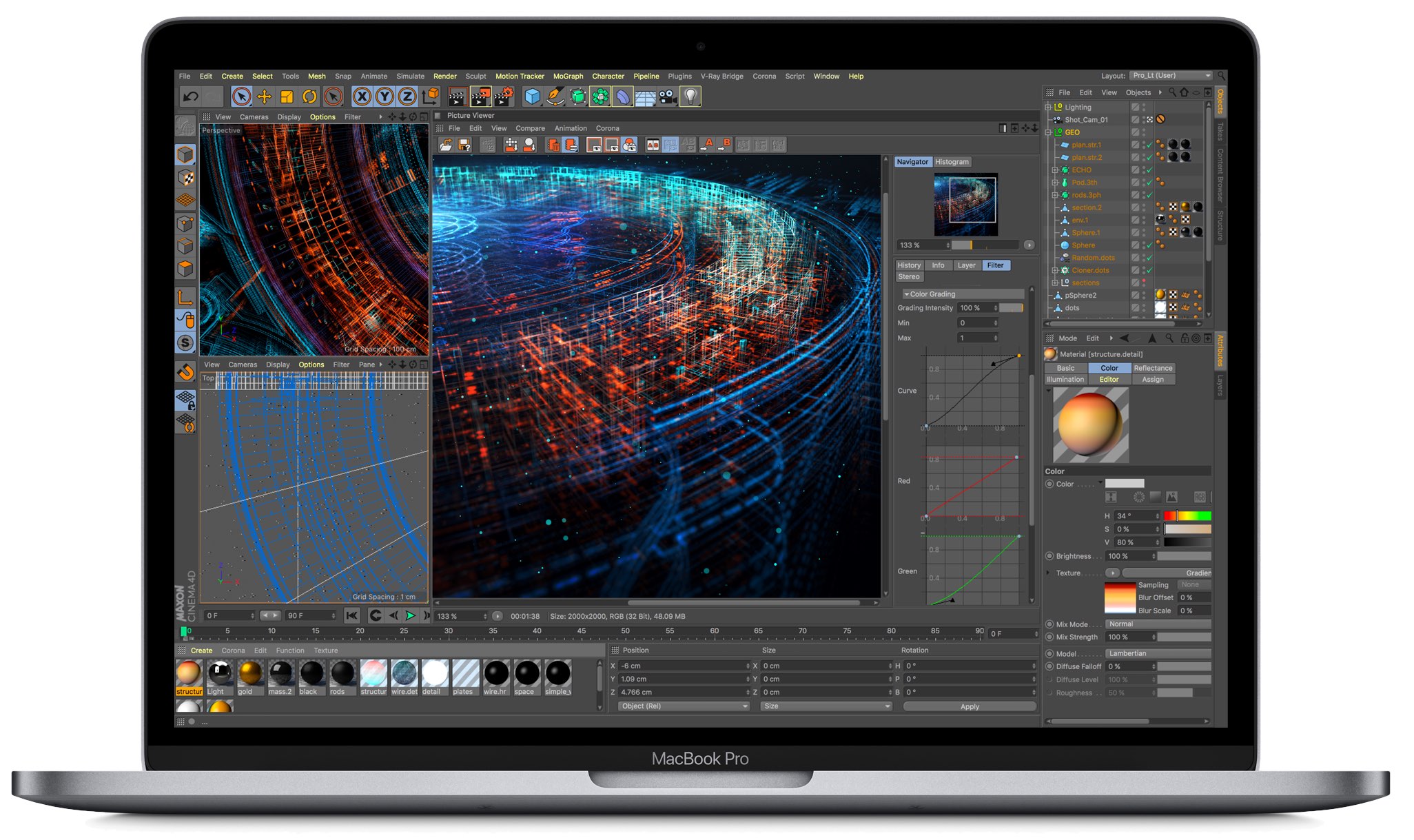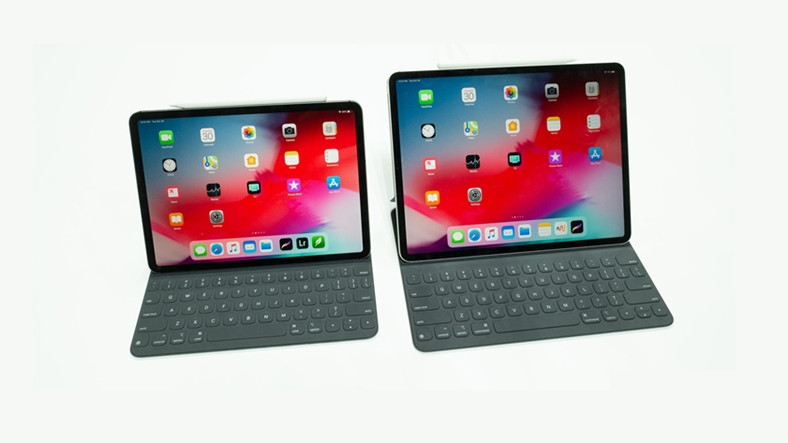

- #GEEKBENCH MACBOOK PRO 2018 PORTABLE#
- #GEEKBENCH MACBOOK PRO 2018 SOFTWARE#
- #GEEKBENCH MACBOOK PRO 2018 SERIES#
- #GEEKBENCH MACBOOK PRO 2018 WINDOWS#
#GEEKBENCH MACBOOK PRO 2018 SOFTWARE#
The 2018 MacBook Pro 13-inch took 16 minutes and 57 seconds before Apples software update. Who knows what new iPad features will come along in iOS 13 or iOS 14, and there’s a chance that some features may require higher available RAM (or at least work better with the additional 2 GB floating around). This test measures overall performance on laptops, and the 13-inch MacBook Pro is tops.

In terms of future-proofing, obviously bigger is better. Single-core: 1,072 Multi-core score: 2,714 The publication said that these averaged numbers suggest that the mid-range 2020 MacBook Air with a 1. With the current state of iOS, the additional RAM will primarily make a difference in how many apps can stay frozen in memory, or how many Safari tabs can be kept open without reloading. MacRumors has averaged Snell’s results for the mid-range model of the new MacBook Air (again, running a 1.1GHz quad-core Core i5 chip) with ten other Geekbench 5 results. The 1 TB configurations feature 6 GB RAM. 64 GB, 256 GB and 512 GB SKUs of both the 11-inch and 12.9-inch models feature 4 GB RAM, unchanged from the 2017 generation. Steve Troughton-Smith October 30, 2018įor the first time in an iOS device, 2018 iPad Pro RAM varies based on the particular storage configuration. Multiple people are telling me that only the 1TB iPad Pros get 6GB RAM. As seen here, the device with identifier ‘iPad8,8’ has 5650 MB of memory whereas ‘iPad8,3’ has 3769 MB (6 GB vs 4 GB). These Geekbench reports also back up the claims that the iPad Pro offer 6 GB of RAM … on some models. Going beyond portables, the iPad Pro matches or beats almost all 2017 iMac configurations, and rivals the iMac Pro on single-core prowess. The i9 MacBook Pro sells for more than $3000.

Reminder: Apple sells the A12X-equipped iPad Pro from $799.
#GEEKBENCH MACBOOK PRO 2018 PORTABLE#
The new Pro models easily top 41,000.Īt least in single-core, Apple only sells a single configuration of portable Mac that is decidedly faster than the iPad Pro - the Core i9 MacBook Pro. The second-gen iPad Pro could achieve just under 30,000 on the compute benchmark. Tasking the GPU computational ability, Geekbench shows the Metal Compute Score rising by 40% year-over-year. The new iPad Pro is 30% faster than its predecessor in single-core and effectively doubles multi-core performance up to 18217, at least according to these synthetic benchmarks. The 2017 iPad Pro can achieve 3908 single-core and 9310 multi-core scores. The six-core i7 is faster in the multi-core benchmark than the eight-core iPad Pro - but it is really not that far behind. The 12.9-inch iPad Pro specced with 512 GB storage sells for $1349, half as much. Apple offers an off-the-shelf 2.6GHz i7 in a 512 GB 15-inch MacBook Pro config for $2799. The comparable 256 GB 12.9-inch iPad Pro is $1149. You can build-to-order a 13-inch MacBook Pro with the i7 processor and 256 GB SSD for $2099.

The single core score goes to toe-to-toe with a 2.6 GHz i7 2018 MacBook Pro … This shouldn’t come as that much of a surprise since this year’s model features the first core increases for the MacBook Pro since 2011. The iPad reports ~5030 in single-core, and ~18000 in multi-core. Initial Geekbench scores on the recently announced 2018 MacBook Pro lineup show significant improvements over last year’s models. Geekbench benchmarks for the new iPad Pro have shown up online, and the scores are certainly impressive.
#GEEKBENCH MACBOOK PRO 2018 WINDOWS#
Apple uses ‘PCs’ as a nice euphemism for both Windows and Mac computers without directly slighting its own Macs. Still a great machine, though.Apple said that the new iPad Pro with its A12X chip was faster than “92% of portable PCs” at its announcement event on Tuesday. There isn't a bad option, but keeping your 2015 costs you nothing, and I think you'll find that the new Air isn't necessarily as strong in as many use cases as a first glance suggests. Look at multiple benchmarks, including Cinebench, which stresses the machine differently.
#GEEKBENCH MACBOOK PRO 2018 SERIES#
The Y series 1.4GHz i7 in the 12" MB, for example, shows up well in Geekbench, too - I'm a fan of the machine, but I wouldn't say that it is as strong as a U series chip of only a couple generations back. Geekbench gives a decent view of what the CPU can do and I like it for quick comparisons, but it isn't the best view into what happens in a more high stressed situation. The benchmarks should show up more clearly on one that exercises the CPU harder. Although the Air has active cooling (unlike, say, a 12" MB), the Y series chips in these thin designs are designed to throttle up and then drop back more quickly than their higher TDP siblings in the U series line. The Y series CPU in the new Air is a nice chip, but it is more of a sprinter than a marathon runner. Unless you want the newer and shinier machine, your 2015 is still a stronger machine overall.


 0 kommentar(er)
0 kommentar(er)
